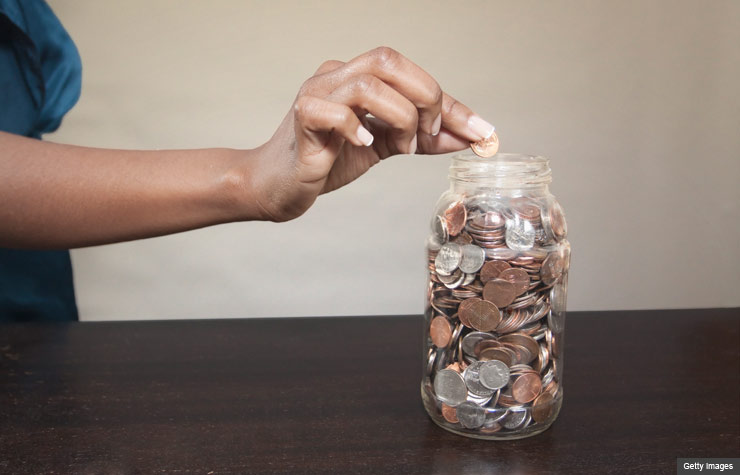
How to recover from a financial setback, bankruptcy, divorce, credit d...
- Select a language for the TTS:
- UK English Female
- UK English Male
- US English Female
- US English Male
- Australian Female
- Australian Male
- Language selected: (auto detect) - EN
Play all audios:
Even if you are content to rent for the rest of your life and never plan to own a house or condo again, one way to bounce back from foreclosure is to rebuild your savings by building a
"rainy day" fund and an emergency savings account. Otherwise, it may seem like you can never get ahead or achieve financial stability. A rainy day fund is a small savings account,
typically between $500 and $1,500, that can help you deal with unexpected expenses — like the flat tire on your car or the leaky toilet that forces you to call the plumber. Without a rainy
day fund, you're forced to constantly use credit cards to pay for short-term expenses or one-off emergencies. And since your credit has already taken a hit after foreclosure, overusing
your credit cards, which also hurts your credit, is the last thing you want to do. (See AFTER ANY FINANCIAL BLUNDER: BUILD AN EMERGENCY FUND, on Page 3, for information on emergency savings
accounts.) AFTER CREDIT WOES OR MAJOR INVESTMENT MISTAKES: SEEK PROFESSIONAL HELP LISTEN! AARP financial educator Jon Dauphine talks about how managing your credit cards poorly can affect
your credit score. Nothing can deal a bigger blow to your confidence — and your finances — than making a major investment mistake. Whether it's watching your 401(k) go up in smoke,
investing in a relative's business that goes belly up or simply picking a series of investment dogs, it's no fun watching your investments fail. If you're just baffled about
how to best manage your retirement assets, consider setting up a meeting with a financial planner or a financial adviser. You can find specialists and experts in your area via the Financial
Planning Association and the National Association of Personal Financial Advisors. Both are reputable groups with professionals who can evaluate your situation, help you create a financial
plan and guide you toward your financial goals after a setback. If budgeting blunders, credit issues and debt problems are plaguing you, seek assistance from a HUD-certified, nonprofit
credit-counseling agency. AFTER DIVORCE: REESTABLISH CREDIT Divorce can be a nasty matter, both emotionally and financially. But once the dust settles, you can recover from this setback,
too. From a financial perspective, you'll need to reestablish credit in your own name after a marriage breakup. To find out where you stand, get your credit reports from the three
credit bureaus — Equifax, Experian and TransUnion — via the government-mandated site, AnnualCreditReport.com. If you spot any credit errors, write to your creditors or the credit bureaus and
dispute any mistakes.